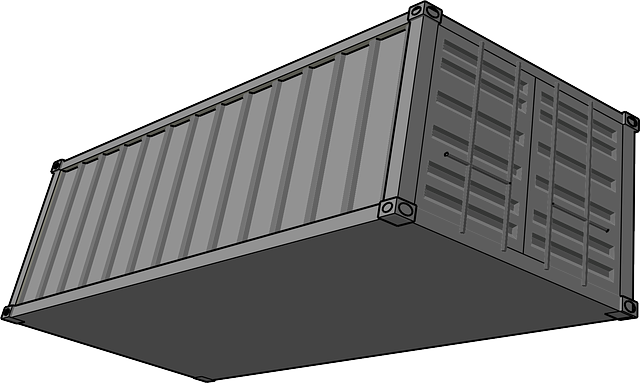Understanding federal and state liability requirements is crucial for businesses in transportation and logistics due to stringent cargo liability coverage regulations. The Department of Transportation (DOT) sets federal standards, while states have their own guidelines for safety, victim compensation, and order maintenance. Businesses must expertly navigate these landscapes to avoid fines, lawsuits, and reputational damage by staying informed about regulatory updates. Assessing cargo liability coverage is vital to protect against potential losses during transit. This involves understanding specific insurance types, amounts tailored to goods' value and nature, and potential incident consequences. Regular reviews are essential to maintain compliance, prevent financial losses, and safeguard reputations in case of unforeseen events. Strategies for ensuring compliance include thorough research on applicable regulations, robust internal controls, regular audits, employee training, technology solutions, and fostering a culture of safety. Staying current with regulations through legal newsletters and maintaining comprehensive digital records helps businesses avoid compliance issues and fosters accountability.
In today’s intricate logistics landscape, ensuring compliance with federal and state liability requirements is paramount for businesses navigating the complex world of shipping and transportation. This comprehensive guide delves into the critical aspects of managing risk, specifically focusing on cargo liability coverage. We explore strategies to understand diverse legal mandates, assess appropriate insurance, implement effective compliance measures, and maintain meticulous records, ensuring your business remains shielded against potential liabilities.
Understanding Federal and State Liability Requirements

Understanding federal and state liability requirements is crucial for any business, especially those involved in transportation and logistics, given the stringent regulations around cargo liability coverage. These requirements vary significantly across jurisdictions, with each level of government having its own set of rules and guidelines to ensure safety, compensate victims, and maintain order.
Business owners must be adept at navigating these complex legal landscapes to avoid hefty fines, lawsuits, and reputational damage. This involves meticulously studying federal mandates such as those from the Department of Transportation (DOT) and comprehending state-specific liability laws. Staying informed about updates and changes in these regulations is essential, as non-compliance can have severe consequences, including loss of operating licenses and significant financial burdens due to uninsured or underinsured claims related to cargo liability coverage.
Assessing Your Cargo Liability Coverage

When ensuring compliance with federal and state liability requirements, assessing your cargo liability coverage is a critical step. This involves understanding the types and amounts of insurance that protect against losses or damages incurred during transit. Businesses must evaluate their risk exposure based on the value and nature of the goods being transported, as well as the potential consequences of accidents or incidents. It’s essential to consult with insurance professionals to tailor policies that align with specific operational needs.
Regular reviews are necessary to ensure cargo liability coverage keeps pace with changing regulations and business dynamics. Stay informed about federal and state updates related to liability laws, which can impact the scope and requirements of your insurance policy. By proactively assessing and adjusting your coverage, businesses can safeguard against financial losses, maintain regulatory compliance, and protect their reputation in the event of unforeseen events during cargo transportation.
Strategies for Compliance and Risk Mitigation

Ensuring compliance with federal and state liability requirements is a multifaceted endeavor, particularly for businesses dealing in transportation and logistics, such as those involved in cargo liability coverage. Effective strategies for compliance and risk mitigation involve several key steps. First, conduct thorough research to understand the specific regulations applicable to your operations, both at the federal level (e.g., FMCSA, DOT) and state levels where you operate. This includes staying updated on insurance requirements, safety standards, and reporting obligations.
Implementing robust internal controls and procedures is another crucial component. This can include regular audits, employee training programs, and the adoption of technology solutions to streamline compliance monitoring. Investing in cargo liability coverage that aligns with these regulations not only protects against financial losses but also demonstrates a commitment to operational excellence and risk management. Additionally, fostering a culture of safety and accountability within your organization can significantly mitigate risks associated with liability claims.
Staying Updated and Maintaining Records

Staying informed about the latest federal and state regulations is paramount for businesses, especially in the logistics industry where cargo liability coverage plays a significant role. Regular updates on legal requirements are crucial to avoid compliance issues and potential financial burdens. One effective strategy is to subscribe to reputable legal newsletters or platforms that offer access to regulatory changes. These resources provide valuable insights into new legislation, amendments, and interpretations, ensuring businesses remain abreast of their obligations.
Maintaining comprehensive records is an integral part of this process. Accurate documentation of all liability-related activities, such as insurance policies, risk assessment reports, and incident reports, is essential. Digital record-keeping systems can streamline this process, making it easier to access and organize information. Regular reviews of these records help identify trends, assess risk management effectiveness, and promptly address any non-compliance issues, thereby fostering a culture of accountability and safety in the face of evolving legal landscapes, including those pertaining to cargo liability coverage.
Ensuring compliance with federal and state liability requirements is paramount for businesses dealing with cargo transportation. By understanding these regulations, assessing your cargo liability coverage, implementing risk mitigation strategies, and staying updated on changes, you can protect your business from potential liabilities. Remember, adequate cargo liability coverage acts as a shield, safeguarding your assets and providing peace of mind in an ever-changing regulatory landscape.
